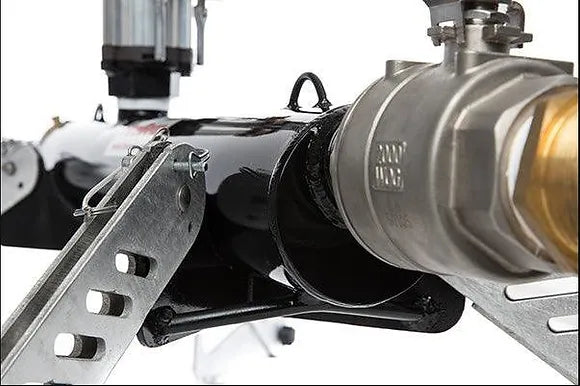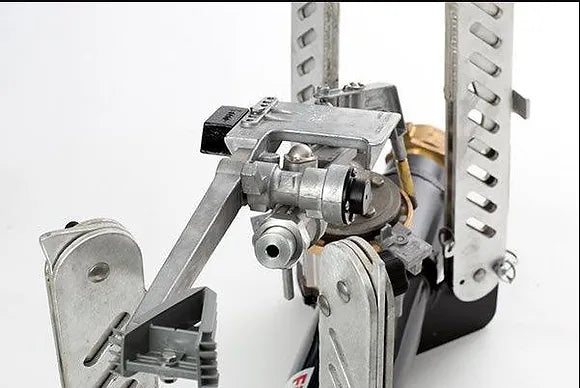FireBozz Magnum 2.5" NPT
The FireBozz® Magnum is a portable fire defense system designed to create an instant firebreak, offering rapid deployment and extensive coverage. Weighing 50 lbs, it can be set up in less than a minute on any terrain, making it ideal for emergency response, municipal works, and property protection. Its durable stainless steel and aluminum construction ensure reliability under demanding conditions. The system disperses water in a broken stream, maximizing water conservation while increasing relative humidity over a wide area. Multiple units can be connected to establish a robust and expansive wet-line, enhancing wildfire defense capabilities.
Specifications:
- Protective Coverage: Up to 300 feet (92 meters) in diameter
- Water Usage: 37–110 gallons per minute (140–416 liters per minute)
- Nozzle Sizes: 0.4", 0.5", and 0.6" (10, 12.7, 15 mm)
- Inlet/Outlet Options: 1.5" or 2.5" NPT (40 and 65 mm) thread sizes
- Weight: 50 lbs (22 kg) for 1.5" model; 60 lbs (28 kg) for 2.5" model
- Storage Dimensions: 42" x 21" x 11.5" (104 cm x 53.5 cm x 29.2 cm)
Common Questions
Q: How does the FireBozz® Magnum create an effective firebreak?
A: The system projects water over a massive area, creating a wet barrier that cools fuels and prevents ignition. It also injects vapor into the atmosphere, increasing humidity and reducing fire spread.
Q: Is the FireBozz® Magnum compatible with firefighting foams or retardants?
A: Yes, it is compatible with both foam and retardants, enhancing its versatility in various fire suppression scenarios.
Q: How quickly can the FireBozz® Magnum be deployed?
A: Weighing 50 lbs, the unit is designed for quick and easy setup on any terrain, allowing for deployment in less than a minute.
Q: Can multiple FireBozz® units be connected for larger coverage?
A: Yes, multiple units can be connected to create a rapid and expanded firebreak capability, establishing a robust and extensive wet-line.
Q: What type of maintenance does the FireBozz® Magnum require?
A: Regular maintenance includes checking for debris in the nozzle, ensuring all connections are secure, and inspecting the unit for any signs of wear or damage to maintain optimal performance.








